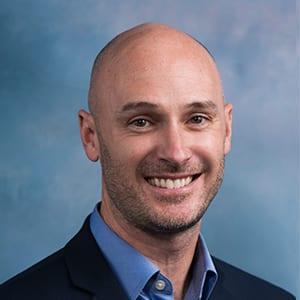
Credit: Georgia State University
ATLANTA–Dr. Tim Denning, professor and associate director of the Institute for Biomedical Sciences at Georgia State University, has received a four-year, $1.67 million federal grant to study how an immunological pathway influences inflammatory signaling in the intestine that can lead to chronic human diseases such as inflammatory bowel disease.
The grant from the National Institutes of Health’s National Institute of Diabetes and Digestive and Kidney Diseases will fund research that may have therapeutic value for treating humans with inflammatory bowel disease, a term for two conditions (Crohn’s disease and ulcerative colitis) that are characterized by chronic inflammation of the gastrointestinal tract.
In the United States, an estimated 3 million adults suffer from inflammatory bowel disease. Common symptoms include persistent diarrhea, abdominal pain, rectal bleeding/bloody stools, weight loss and fatigue, according to the Centers for Disease Control and Prevention.
“While the cause of inflammatory bowel disease is unknown, scientists believe that dysregulated innate and adaptive immune responses directed toward gut microbiota, the microorganisms that live in the digestive tract, are the underlying reason for disease development,” Denning said. “However, much remains to be understood about the immune cells and factors that contribute to inflammatory bowel disease and how they can be controlled to improve human health.”
In collaboration with co-investigator Dr. Didier Merlin, professor in the Institute for Biomedical Sciences, the research team will target an immunological pathway in the colon called the IL-36/IL-36 receptor axis using nanoparticles to test whether manipulating the pathway during intestinal inflammation could be beneficial in treating humans with inflammatory bowel disease. Their previous work has found this pathway is important in regulating immune responses and intestinal inflammation.
The researchers will define how this pathway influences innate and adaptive inflammatory signaling in the intestine of mice that model human inflammatory bowel disease. They will also investigate how interleukin (IL)-36 cytokines (small proteins that are important in cell signaling) control immune cell activation, epithelial barrier protection and restoration. They will explore how these cytokines regulate the gut microbiota using a germ-free mouse facility with mice that have no microorganisms living in or on them.
For more information about the grant, visit https:/
###
Media Contact
LaTina Emerson
[email protected]
404-413-1353
Original Source
https:/




